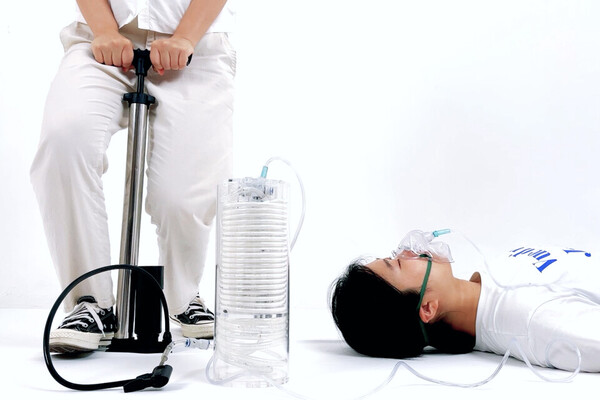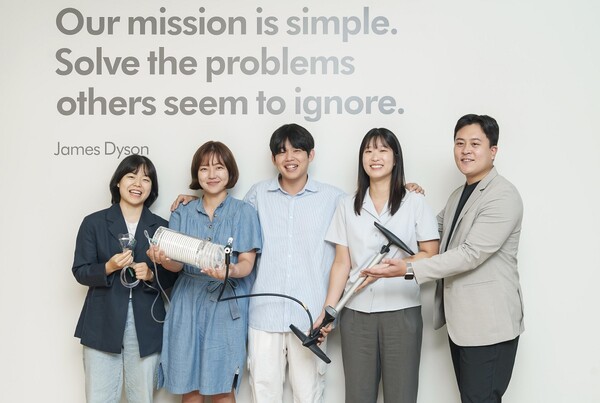An unpowered medical oxygen generator developed by Korean researchers for developing countries has been named a strong candidate in an international design competition.

Professor Bae Sang-min of the Department of Industrial Design at the Korea Advanced Institute of Science and Technology (KAIST) designed the new product, Oxinizer. The device uses a readily available bicycle air pump to generate oxygen and deliver it to patients.
KAIST said Wednesday that Oxinizer developed by Professor Bae's team has been selected as one of the top 20 global winners of the James Dyson Award 2024. Oxygenizer was also selected as one of the top 100 at Prototypes for Humanity 2024, organized by Art Dubai Group, and will be exhibited in Dubai next month.
The Jameson Dyson Awards, organized by Dyson founder Sir James Dyson, recognizes the most innovative and outstanding designs annually from the next-generation engineers and designers worldwide, soliciting ideas to solve everyday problems.
This year, 1,911 products were submitted from 29 countries, and 20 finalists were selected for the International Competition. Sir James Dyson will select the winner and announce it on Nov. 13. The shortlisted entries will receive a cash prize of £5,000 (about 8.92 million won), with an additional £30,000 awarded to the winner.
Professor Bae's team was selected as the winner of the domestic competition in September and received £5,000 to develop the idea further and commercialize the product. The domestic competition attracted 122 teams nationwide.
Oxynizer was also among the top 100 in the Prototypes for Humanity 2024, where universities from over 100 countries submitted more than 3,000 products. The products selected in the TOP 100 on Sept. 11 will be unveiled at the exhibition from Nov. 17 to 22 at Jumeirah Emirates Towers in Dubai. Organizers will select the top five products during the exhibition, and the grand prize winner will receive $100,000 (136 million won).
Prototypes for Humanity is a global project organized by Art Dubai Group in collaboration with Dubai Future Foundation, Dubai Culture and Arts Authority, and Dubai International Financial Centre. It involves leading universities worldwide, including Harvard University and the Massachusetts Institute of Technology (MIT).
Oxynizer was developed by Professor Bae's students Kim Ji-won, Park Kyung-ho, Lee Seung-jun, Lee Ji-won, Jung Yeo-hyun, and Kim Jung-woo. It is the result of research conducted in the Design Project 1 class for graduate students at KAIST’s Industrial Design Department.
“The device uses a bicycle air pump to generate oxygen and supply it to patients. It can separate water vapor and nitrogen in the air using silica gel and zeolite, which are the main materials of the filter, to provide oxygen at a concentration of up to 50 percent,” Professor Bae said. “The filter can be heated and reused after 120 hours of use, so it has the advantage of being used semi-permanently.”


